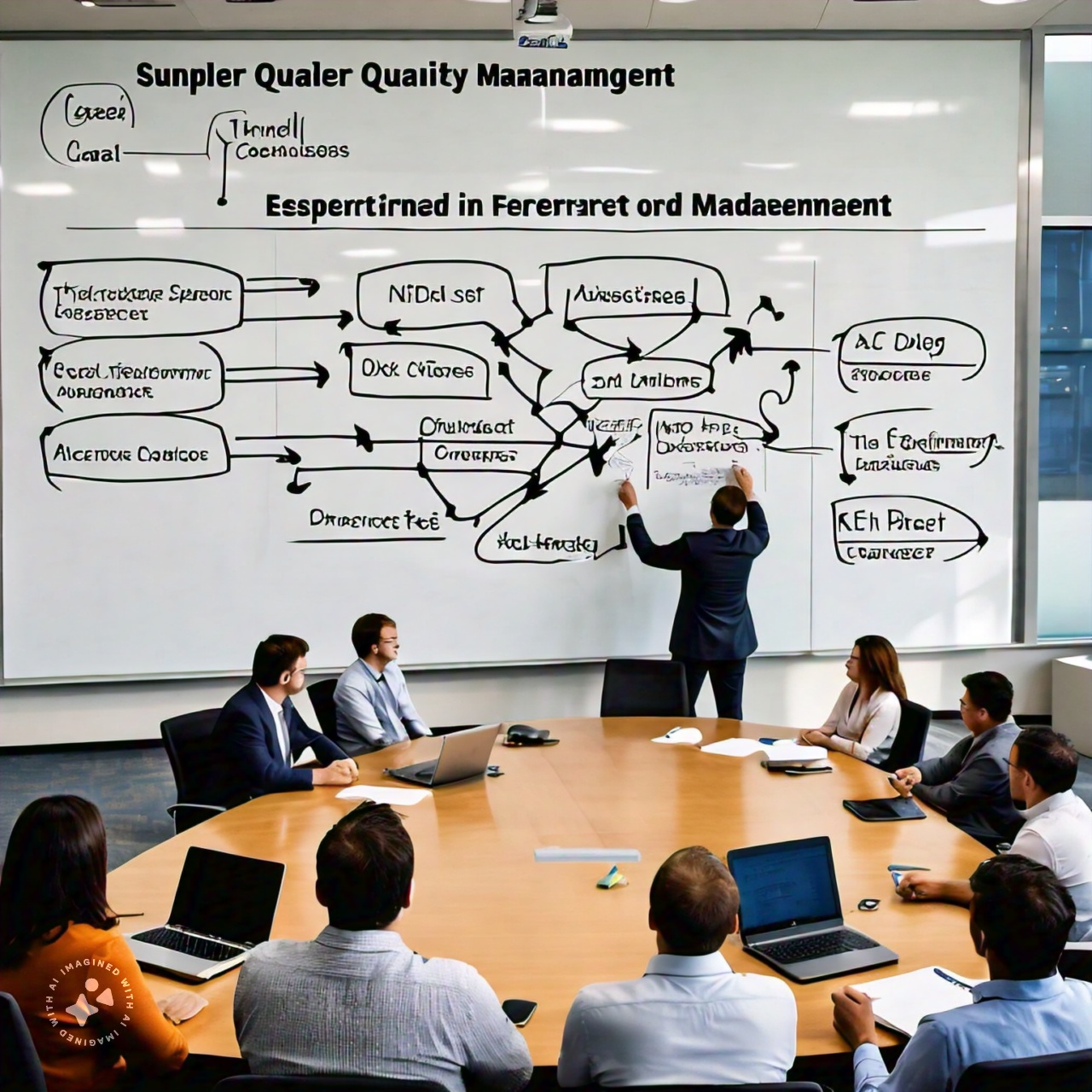In today’s competitive landscape, businesses rely heavily on a robust supply chain to deliver high-quality products and services. This underscores the critical importance of managing supplier quality. Supplier quality management (SQM) encompasses a strategic approach to guaranteeing that suppliers consistently provide goods and services that meet your organization’s predetermined standards. Implementing effective SQM practices offers many benefits, including enhanced product quality, reduced costs, and a more substantial brand reputation. Let’s delve into the key goals in managing supplier quality.
Reducing Defects and Ensuring Consistent Quality
One of the primary goals of SQM is to minimize the occurrence of defects in the supplies you receive. This translates to fewer product recalls, repairs, and replacements, ultimately increasing customer satisfaction. By establishing clear quality expectations upfront and implementing a robust quality control system, you can proactively identify and address potential issues before they snowball into more significant problems. Regular communication regarding quality standards and conducting supplier audits are crucial to achieving this goal.
Optimizing Costs and Streamlining Operations
Effective SQM goes beyond merely ensuring quality; it also fosters cost reduction and operational efficiency. Receiving defect-free supplies minimizes the need for rework and scrappage, leading to significant cost savings. Streamlined communication and collaboration with suppliers can expedite the procurement process and reduce administrative burdens. Furthermore, SQM can help you identify and mitigate potential supply chain disruptions, ensuring a smooth flow of operations.
Building Strong Supplier Relationships
A successful SQM strategy prioritizes building solid and collaborative relationships with your suppliers: open communication and a focus on continuous improvement foster trust and transparency within the supplier network. Regularly providing constructive feedback to your suppliers allows them to identify improvement areas and enhance their quality control processes. By fostering a spirit of partnership, you can leverage your suppliers’ expertise to achieve your quality goals.
Maintaining Regulatory Compliance
Many industries are subject to stringent regulations regarding product safety and quality. A well-defined SQM program helps suppliers adhere to these regulations, safeguarding your organization from potential legal repercussions and reputational damage. By incorporating compliance requirements into supplier contracts and conducting regular audits, you can stay on top of regulatory changes and mitigate associated risks.
Enhancing Brand Reputation
Delivering consistently high-quality products and services directly impacts your brand reputation. By implementing SQM practices, you can ensure that your brand is associated with excellence and reliability. This, in turn, fosters customer loyalty and trust, leading to a competitive edge in the marketplace. Investing in SQM demonstrates a commitment to quality that resonates with customers and builds brand value.
Implementing a Winning SQM Strategy
Having explored the critical goals of SQM, let’s shift gears and discuss practical steps for implementing a winning SQM strategy.
1. Selecting the Right Suppliers
The foundation of a successful SQM program lies in selecting suitable suppliers. Conduct thorough research to identify suppliers with a proven quality and reliability track record. Evaluate their quality management systems, manufacturing processes, and financial stability. Request references and conduct site visits to understand their operations firsthand.
2. Establishing Clear Quality Expectations
Once you’ve selected your suppliers, clearly define your quality expectations. Develop detailed specifications for the required products or services, outlining acceptable tolerances, performance criteria, and testing procedures. Communicate these expectations clearly and ensure your suppliers fully understand them.
3. Implementing Quality Control Measures
Proactive quality control measures are essential for preventing defects and ensuring consistent quality. These measures may include supplier audits, incoming inspections, and ongoing supplier performance monitoring. Utilize tools like control charts and statistical process control (SPC) to identify trends and potential issues early on.
4. Promoting Continuous Improvement
A successful SQM strategy is dynamic. Regularly review your SQM program and identify areas for improvement. Encourage continuous improvement from your suppliers as well. Please provide them with feedback on their performance and work collaboratively to identify and implement solutions to quality-related issues.
5. Leveraging Technology
Technology can significantly enhance your SQM efforts. Consider utilizing cloud-based supplier management platforms to streamline communication, track supplier performance data, and manage audits. These tools can improve efficiency, transparency, and collaboration within your supply chain.
Conclusion
Effective supplier quality management is an essential investment for businesses seeking to elevate their supply chain and achieve long-term success. By focusing on the critical goals outlined above, you can establish a robust SQM program that minimizes defects, optimizes costs, strengthens supplier relationships, ensures regulatory compliance, and enhances your brand reputation.
FAQs
-
Can AmrepInspect help with Supplier Quality Management?
Absolutely! AmrepInspect offers a comprehensive suite of SQM services, including supplier audits, quality control inspections, and training programs. We can help you establish a robust SQM program tailored to your needs.




